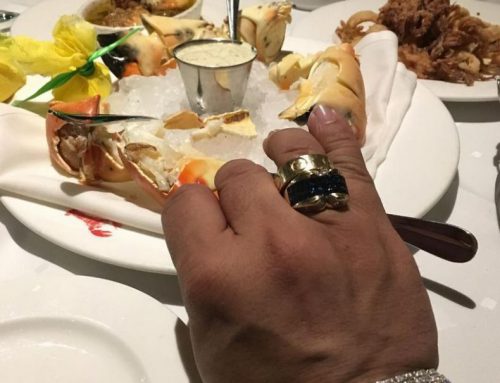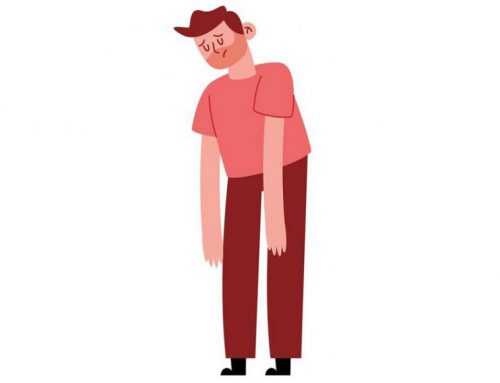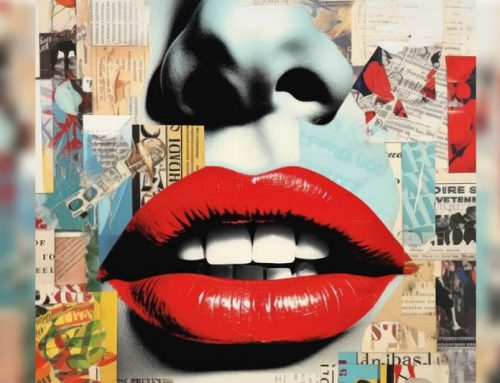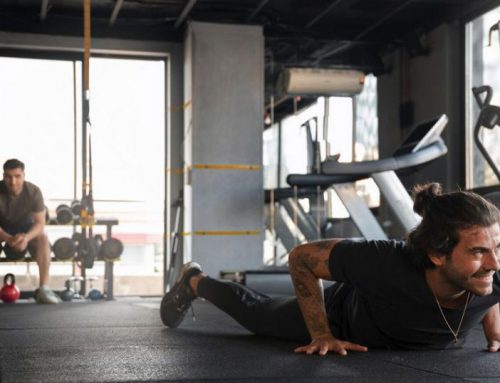Source: https://www.hollywoodreporter.com
by Kim Masters
Kathy was 17 when she met a famous actor in a department store, she says.
What followed is a tale of power, celebrity, abuse and the destruction of a mother-daughter relationship — and, for one writer, a window into the ethical dilemmas for journalists amid the anti-harassment movement. I first heard about Kathy Taylor when I got a call in February from her older sister, Kristen Hiatt.
Hiatt’s question: Would I be interested in hearing about Kathy’s experience decades earlier with a famous actor?
Of course I said yes.
Kathy soon called and started to tell me about a time in 1979 when she, then 17 and working in the teen fashion department of a Denver store, spotted the actor, a household name, then in his late 30s.
She had a bit of a crush on him, so she asked for his autograph.
And she told him she thought he was cute.
What she thought would be the briefest of encounters took a turn when he said, “You’re not bad yourself,” and asked her when she got off work.
He invited her to his hotel that night.
She called her mother and asked if she could go.
It’s obvious already that things are going to take a bad turn in this story.
But in that first call, Kathy revealed what happened only up to a point.
She wanted to know before she went on if THR would pursue the story.
She already had approached a couple of newspapers, only to be turned away.
And I can understand why.
Based even on the limited account, it was clear this story would be hard to corroborate.
Yes, Kathy was willing to go on the record, and she had family and some friends who would confirm that they had heard at least part of her story years earlier.
But was that enough to publish a story that could devastate an actor who’s now over 70?
There is no easy answer.
Legitimate news outlets have a high bar for publishing stories alleging misconduct.
Kathy had no photos of herself with this actor, nothing to document her claims.
But having heard just part of her story, my instinct was that it wasn’t fabricated.
When accusers approach, you try to get a sense of whether their account is clear and consistent.
Kathy’s seemed to be both.
I also leaned toward believing her in part because I could sense the toll it was taking on her to tell it — and the urgency of her need to share it.
By this time, I had spent months talking to victims of alleged improper conduct.
(THR has published my reporting on former Amazon Studios chief Roy Price, Disney/Pixar animation chief John Lasseter and film financier Andrew Duncan.)
People who had come forward were not doing it with relish and glee; generally, they were upset and deeply anxious.
Often, they needed to talk at length.
Even for battle-hardened reporters, it is not always easy to hear these accounts — and repeatedly, as often there are multiple accusers and every detail has to be checked.
But when there are credible claims, it is not only our job to cover them but a privilege to be entrusted with the task.
What we usually do when one accuser comes forward is to look for additional credible victims.
If Kathy’s story was true, it seemed unlikely that she would have been the only person to have had this type of interaction with the actor.
But it also seemed likely that this actor would have operated with some stealth.
He wasn’t walking into the teen department of Bullock’s on Wilshire.
He was in Denver, for whatever reason, and he didn’t appear to be on location or with companions.
Without wanting to tar the actor unfairly, I called two people who had worked closely with him decades earlier to ask discreetly whether they had ever seen anything that made them uncomfortable.
Neither said they had, and it quickly seemed that if he had a pattern of misconduct, he had kept it off the radar.
We were stuck.
But I wasn’t at ease telling Kathy that we had tried and failed.
If her story was true, then it should be told.
I racked my brain.
Then, weeks after her first call, an idea came to me: What if we named the accuser but not the alleged perpetrator?
What if we gave Kathy a chance to tell her story while using this example to give readers a window into the decisions we grapple with in journalism?
The downside was that people naturally would try to guess who the actor was.
All I can say is, don’t.
You’ll guess wrong.
I explained the idea to Kathy, who embraced it.
We agreed to meet at a restaurant, where she told me that revelations about other predators have made her want to come forward.
That need crystallized with allegations about Matt Lauer.
Sure, she’d heard about Harvey Weinstein and Kevin Spacey, but Lauer had seemed so likable.
Like the actor.
We’ll pick up Kathy’s story as she, at 17, arrived at the actor’s hotel in Denver that first night.
(Note again that the events described here are her allegations.)
“Right when I walked into the room, I started feeling, ‘Oh, what have I done?'” she says.
“But I had this ‘I’ve been chosen’ feeling.
I think that euphoric, larger-than-life feeling clouded any 17-year-old’s judgment I might have had.”
The actor was playing the guitar and she sat on a sofa beside him awkwardly.
She was struck with the realization that this was a man much older than the couple of teenage boyfriends she’d had.
(He was married but apparently separated.)
That night, nothing dramatic happened.
After an hour or so, he sent her home in a taxi.
He asked if she wanted to hang out the next day and she said yes.
The following morning, his black limo arrived at the small, ranch-style house where she lived with her mother, who was a schoolteacher.
Once the car pulled up, Kathy says some neighbors emerged and asked, “Did your grandma die?”
And she got to answer, “No, this is my friend.”
It was fun, and she told herself that the actor must really like her because he was taking her out.
“How did you know that I like it when girls wear jeans?” he asked once she was in the car.
They went to the Denver Botanic Gardens, where a couple recognized him and asked her if she was an actress.
She felt confused but excited.
After a fairly short time, he suggested going back to his hotel.
Kathy believes it was sometime during this encounter when he asked her age.
When they returned to his room, he ordered an elaborate lunch.
He asked if she’d ever had caviar.
He offered her pot, and they smoked it together.
Then he said, “Let’s lie down on the bed.”
At that point, Kathy says, she told him she “didn’t want to do anything.”
He answered that nothing would happen, but very quickly, he was lying on top of her, aggressively trying to kiss her.
She remembers thinking, “This is a stranger.”
She fended him off, but he convinced her to undress and take a shower with him.
When Kathy was 10, she lost her father to a heart attack at 48.
Her sister Kristen says their mother taught them to “avoid conflict at any cost, even if it was a detriment to yourself.”
So Kathy took a shower with the actor and he didn’t push her for more.
He gave her a couple of T-shirts from his latest movie and called her a cab.
Once home, she told herself nothing really bad had happened.
They hadn’t had sex.
She had his phone number, which felt magic, though she didn’t intend to dial it.
It was “a souvenir more than a connection.”
And that was that, until about a month later.
“Guess who called?” her mother said.
The actor wanted her to come to California for the weekend and would send her an airline ticket.
Once again, Kathy asked, “Can I go?”
Her mother asked to speak to the actor.
Now 92, Margaret Crowder acknowledges that all she asked him was whether he would pick her daughter up at the airport himself and “take care of her.”
For Kathy, the fact that her mother did not stop her at that point — and for years would not acknowledge the error — would later lead to lasting bitterness.
Their relationship has recovered somewhat, but it’s still shaky.
“I got caught up in the fantasy, too,” Margaret says.
Somehow she didn’t focus on the actor’s intentions toward her daughter.
“I carry guilt about it,” she says.
“I don’t know if I’ll ever get over it.”
The actor did, in fact, pick Kathy up at the airport.
He drove her to a small apartment in Malibu, made dinner, gave her some pot and some wine.
Then they had sex.
Kathy told herself that because she had made the trip, she had obligated herself to comply.
“It was emotionally cold,” she says. ”
‘Cause as soon as he was done, he’s done.
He gets up, walks away and I’m just left.”
Given that the age of consent in California was 18, the actor — if the allegations are true — had not only committed statutory rape but had also transported a minor across state lines for illegal sexual purposes.
The penalties in place at the time for that offense included up to 10 years in prison.
They had sex again in the morning.
In the daylight, he looked to her like “a hairy old man.”
She asked the actor to take her to Hollywood but he said no, it wasn’t much fun there.
Later that day, he put her on a plane back to Denver.
After that, he called a couple of times, once from France, and she saw him — and slept with him — again, during a layover on a trip to Hawaii.
She had just turned 18.
“I still liked any attention I could get from him,” she says.
“Especially not having a father, the male attention was part of what I was lacking in my life.”
That fall, she started at Arizona State University in Tempe.
In December, he called and said he would be coming to Arizona.
Though it was the holiday break, she flew back to school early to meet him.
It felt good that he wanted to see her again, but it did not feel good when he called her well past midnight.
By the time he picked her up, she says, she had started to feel awful.
It only got worse when he took her to a hotel in Scottsdale and said, “This is an adjoining room and my kids are next door.”
After some quick sex, he said he had to drive her back to Tempe before his children woke up.
The whole thing felt tawdry and humiliating.
She never heard from him again.
For a while, she told friends she had dated a movie star.
When she married at 23, she told her husband what had happened, though she didn’t present it as a trauma.
She had kids.
But by the time she was in her 30s, problems began: panic attacks, an eating disorder, depression.
She started seeing a therapist.
And when she recounted the story, the therapist said, “Kathy, you know that was abuse.”
As details emerged, the therapist went further: “I think you were raped.”
With that, Kathy started to sob.
Still, it took her some time to accept it because there had been no coercion.
At her therapist’s urging, she wrote the actor a letter telling him that what he had done was wrong.
Her sister hunted down an address — probably his agent’s — and they sent it by certified mail.
There was no answer.
The lingering issue for Kathy, who is a therapist herself now, has been her mother’s failure to intercede.
“Something primitive gets broken when a mother does not protect her child,” she says.
Kristen hopes her mother’s willingness to talk to me will help Kathy: “It’s a really huge thing for Mom to be able to go on the record and say, ‘I didn’t do anything then but I can do something now.'”
Kathy finishes telling me her story in the restaurant.
She and her friend Sue, who came along for support, have shed some tears.
Before we part, Kathy wants to read me an excerpt from her diary.
“Kim will do something,” she wrote.
“She already has — she believed me. …
She thought of a way to tell my story, even though she could not use his name in it.
She is doing something and so am I.
Time’s up.”
Now you, the reader, can put yourself in the reporter’s shoes.
A woman brings you a story about a secret that was not open but closed.
What would you do?
Year: 1979
Harrison Ford
Then wife: Mary Marquardt (m. 1964–1979)
Filmed The Frisco Kid in Colorado and Arizona
Read more on these Tags: Harrison Ford, Mary Marquardt









